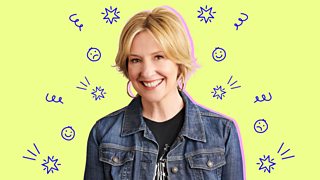Woman’s Hour’s Christmas mixtape: Nine powerful moments from the programme in 2021
2021 was a big year for Woman’s Hour, with Emma Barnett and Anita Rani joining the programme and the show celebrating its 75th anniversary.
From holding those in power to account to hearing from women who found themselves in the most ordinary and extraordinary circumstances, here are some of the most gripping, moving and revelatory moments from the programme in 2021.
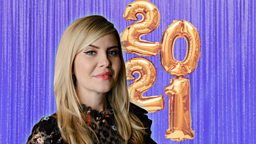
1. Clemency Burton-Hill on life after a brain haemorrhage
Ex-Â鶹ԼÅÄ presenter Clemency Burton-Hill was at work in New York in January 2020 when suddenly her speech became slurred. A year to the day after collapsing from a massive brain haemorrhage, she gave her first broadcast interview to Woman’s Hour to describe what happened and how it affected her speech.
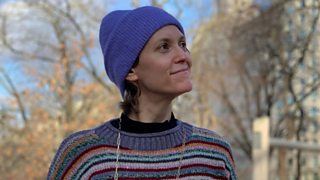
“It's really interesting that you don't just get it back,” Clemency said about her speech. “It was so, so unbelievably frustrating. One day, or even one hour, I could form a word and the next minute I couldn't. It’s not a linear progression. Some days I literally had no words and I thought: ‘Yesterday I could do this.’
“My younger son was just one when it happened, but is now two. So he is learning to speak and there are parallels in my language. But, of course, it's completely different as well because in my head there's no problem with my speech. It’s getting to the words. Speech impaired - I hate the fact that that's how people describe it, like a deficit… ‘impaired’. Surely there's a better word?”
Listen to Clemency's
2. Amanda Knox on life after prison and her acquittal
Fourteen years ago, 21-year-old British student Meredith Kercher was sexually assaulted and killed in her apartment in Italy. Sadly she did not become the most memorable name in the investigation that followed. Amanda Knox, her American flat mate, was found guilty and jailed for 26 years for her murder, alongside Rudy Guede. She was freed on appeal in 2011 after four years in prison and fully exonerated in 2015.
In her first UK interview in years, she told Woman’s Hour how she still hasn’t been able to restore her reputation or take back control of her story.
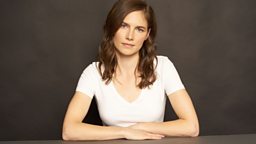
“I think a lot of people are confused about why I haven’t changed my name or gone out of my way to get facial reconstruction or something like that in order to escape this narrative that was thrust upon me,” Amanda said. “But it's kind of the same reason why I never pled guilty to a crime I didn't commit. I didn't do it. It's not fair. There's nothing wrong with my name and there is nothing wrong with my face. And what happened, it's not my fault. So I'm not going to be the one to willingly bear the costs of this misinformation campaign.
“A lot of people followed my case. Not just because it was salacious and crazy, but because they saw that there was a real human person who died and a real human person who was potentially facing an incredible injustice, so they got emotionally impacted and intellectually engaged with a very difficult, complicated situation.
“I've often very much felt like I've not been a real human being to people. I've been an idea of a person that people can project their fears and their fantasies and their prejudice on to. The idea of a sexually active girl, the idea of a young woman accused of a violent sex crime. These are all things that we have a deep intuition about that we then project onto the person without that person ever having a say. So I don't engage with it because I feel like it's a losing battle.”
from Amanda’s interview with Emma.
3. Michaela Coel on the impact of her sexual assault
Michaela Coel’s award-winning Â鶹ԼÅÄ drama I May Destroy You catapulted her to fame and helped fuel many of lockdown’s big cultural talking points this year, from diversity on screen to ‘stealthing’ and sexual assault on TV.
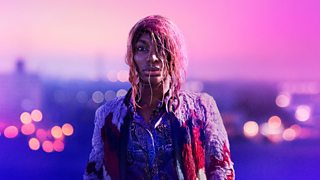
Michaela’s own sexual assault inspired her character Arabella’s story in I May Destroy You. She joined Emma Barnett to discuss her experience.
“My therapist said to me from the very beginning in my first session with her, which took place a few days after I was assaulted, she said my closure cannot be in relation to the case, to whatever happens with this person. My closure has to be irrelevant to whether they find them or not. And that's what I would say to anybody listening, that it can't be about that, because it's a mess,” Michaela said.
“The judiciary system - when it comes to sexual assault and rape - is a mess, and if our closure hinged on finding the perpetrators of these crimes and prosecuting them, then many of us would be broken for the rest of our lives. So, we have to find a way to find strength and to work our way through trauma irrelevant of that.”
to hear more of her conversation with Emma.
4. Dame Sheila Hancock on life in lockdown
One year on from Prime Minister Boris Johnson’s press conference telling the British public to stay at home, actor and author Dame Sheila Hancock joined us. She told Emma what the year in lockdown had been like for her and why she thought we needed a revolution.
Watch a clip from her interview below, or .
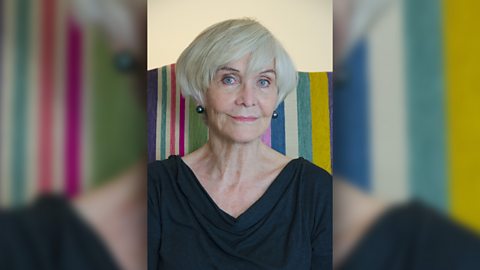
Sheila Hancock: 'I just want to have a coffee with my mates'
Actor Dame Sheila Hancock tells us what a year in lockdown has been like for her
5. Lady Lavinia Nourse on being accused then cleared of child sex abuse
Lady Lavinia Nourse, the 77-year-old widow of former high court judge Sir Martin Nourse, was sensationally acquitted of 17 counts of historical child sex abuse in May.
In her first broadcast interview, she called for those accused of child sex abuse to be anonymous until charged. She told Emma how the case had left her life in pieces and described the experience of being on trial for such an abhorrent crime.
Watch a clip from her interview below, or .
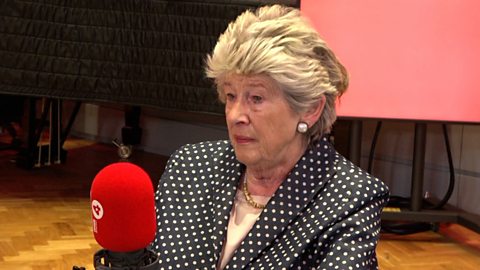
Lady Lavinia Nourse: ‘I was so frightened, absolutely petrified, of what was going to happen’
Lady Lavinia Nourse talks about being cleared of 17 counts of historical child sex abuse.
6. IOPC Deputy Director General Claire Bassett on misogyny in the police
In March, 33-year-old Sarah Everard was falsely arrested, kidnapped, raped and murdered. She was just walking home. Women across the UK contacted Woman’s Hour to express their fears, anger and pure rage.
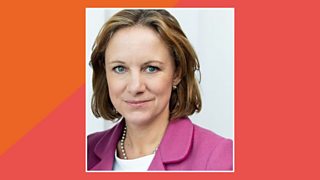
We talked about how this impacted trust in the police. The Independent Office for Police Conduct (IOPC) police the police. The IOPC Deputy Director General Claire Bassett had been leading an investigation into inappropriate group chats and social media across the police force. Emma asked her whether sexist banter and misogyny are part of police culture.
“I think it is really important to remember that the vast majority of police officers do a really tough job in really difficult circumstances really well. And every day we see extraordinary examples of them going above and beyond and doing that,” Claire said.
“But sadly, that majority are really let down by repeated occurrences that we're seeing now of WhatsApp groups, of other social media, where police officers are sharing comments and misogynistic, sexist jokes, referring to their colleagues as sluts and that sort of thing which is just inappropriate and has absolutely no place. The system does need to improve. There is room for systemic improvement, particularly around zero tolerance of this sort of behaviour.
“What we’re trying to do is shine a bright light on what’s happening so that we can support those in policing and those in leadership in policing. That is what we're calling for - for them to bring about this culture and to challenge that behaviour and send that very strong message that there is no place for that. And where it does happen, people will get caught and face very significant sanctions.”
You can hear .
7. Hasina Safi on the fall of Afghanistan to the Taliban and her escape
After Afghanistan fell to the Taliban in August, Woman’s Hour looked at what was happening to women and girls on the ground. We heard about women judges who had to flee and teenage girls who are unable to go to secondary school.
We also spoke to Afghanistan’s former Women's Minister. Hasina Safi, like thousands of others, is now a refugee living in a hotel with her family here in the UK. In November, we caught back up with her to find out how she was getting on.
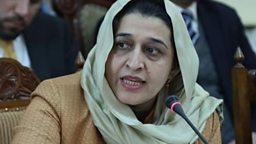
“When you're thinking about life and death, when you're thinking about yourself being targeted and then you think about the hotel, this is a blessing, definitely.
“You feel for your country and it's a feeling in your blood. It's difficult because we really struggled hard on nation building. In the last twenty years we really tried to take up the burden, especially women - the burden for our society, for our community and also for our nation.
“But we will still keep going because the more we fall down, the more we strengthen. We will keep on struggling. Definitely we have challenges, but there is always hope. Once you have a vision, once you have a firm feeling that this is where you want to go, there is always hope for development and for humanity. In whatever situation we are in, we will keep up our struggle.”
Listen to .
8. Mina Smallman on her advice for Sarah Everard’s mother
Mina Smallman is the mother of sisters Bibaa Henry and Nicole Smallman, who were killed in a park last year whilst celebrating a birthday. After hearing Susan Everard’s victim statement about her daughter, she came on Woman’s Hour and shared some advice for Susan and other parents based on what her family had been going through.
“I think of [Sarah Everard] often, of her mum. People often struggle with what to say to you because they don't want to say the wrong thing and saying ‘I'm sorry for your loss’ feels hollow to the person who's saying it.
“But I would say, reach out for help if you're having nightmares, or can't sleep. Go to the professionals. Victim Support is an amazing organisation. They have the ability to arrange for counselling if it's needed. Don't suffer in silence because there comes a time when everybody else has to get back on with their lives. But I know all the parents who have lost children as we have, you're in our thoughts and our prayers.”
Listen to more of Mina Smallman’s interview below, or .
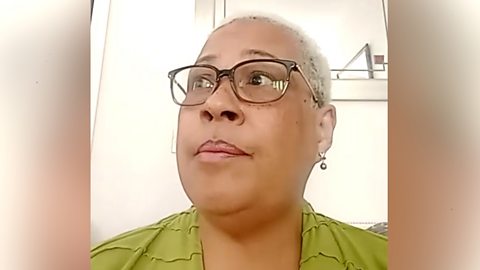
Mina Smallman: 'People often struggle with what to say to you'
Mina Smallman, the mother of Nicole Smallman and Bibaa Henry, speaks about her grief.
9. Diana Gayford, 104, on working on the first ever Woman’s Hour
In October, Woman’s Hour celebrated its 75th anniversary. To mark the occasion, Emma Barnett went to have a cup of tea with one of the first producers of the programme, 104-year-old Diana Gayford. She told us what the programme was like in 1946.
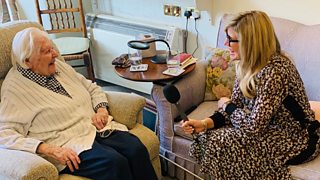
“I was very excited to be on Woman’s Hour and then I was very upset that we really only had to deal with domestic matters at first. I felt women had gone past that. It was some cookery recipes because food rationing was still on, hairdressing, fashion, childcare and that was about it. All domestic items,” Diana said.
“In those days, we were informing women about things. And I would say from the few programmes I've listened to, we're now asking women about things more and interviewing them and asking them to say what they feel, whereas it was different before.”
If you'd like to hear more of Diana’s conversation with Emma, .
Listen back to the full Woman’s Hour programme picking out key moments from the programme in 2021 on Â鶹ԼÅÄ Sounds, where you can also find all of the interviews included in this article. Join the conversation on and @bbcwomanshour.


